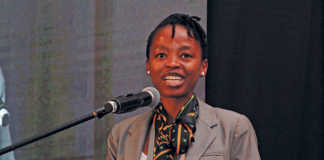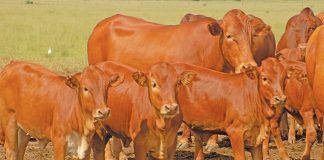
William Smit was an only child who inherited the family cattle farm. At the local school he was a star achiever, always cheerful and popular. The Smits were renowned for their quality animals.
William’s suggestions to add value by feedlotting, however, fell on deaf ears. Even after his father’s death, William could never make up his mind about it, and he continued to farm much like his father did.
Buyers noticed declining animal quality, while William and his wife became more and more reclusive, attending fewer social functions, study groups and even church services.
When they did appear they were morose and always negative in any conversation.
Eventually the only way to contact them was to visit the farm, where William would lament the climbing costs of supplements, low cattle prices and incompetent politicians.
He and his wife passed away within weeks of each other and, with no heirs, left the farm to a research trust on grasses and livestock production.
Sam’s story
Sam West borrowed heavily and bought a small tobacco farm in the Lowveld. Gregarious and cheerful, he regularly attended social functions, farmers’ days and study groups.
But when the tobacco price collapsed, these attributes weren’t enough to save his business. He lost the farm. Other than snippets of news from time to time, we lost contact.
I heard West had hired land and was producing berries in the Cape. Next I heard he was in broilers on the Highveld; later still I heard he was involved in cashews in Mozambique.
I was delighted to bump into him in town recently; over a coffee he told me his good news.
“I had the most incredible luck,” he said. “My job in Mozambique was for an overseas-based family with investments in agriculture around the world.
“They are wonderful people to work with, and we clicked. We were lucky enough to have a number of great years for cashews with high yields and prices and made good money.”
He went on to tell me the owners had decided to expand their nut businesses.
West had been appointed CEO of the Africa-based businesses, and been allocated a shareholding that would make him a full partner.
Was it luck?
Was it luck or was it opportunity?
Opportunity comes to those who expose themselves to it, recognise it, and seize it!
Dr Richard Wiseman’s book, The Luck Factor (2003), identifies why some people seem to have all the luck. He, and others who have followed his path, have all come to the same conclusion.
It’s the thoughts, habits and behaviour of people that determine their ‘luck’. Here are the things they identified as critical to increasing one’s ‘luck factor’:
- Embrace new ways
Try new ways of doing things without insisting on having every last fact, option and risk identified and analysed. This leads to procrastination, a sure killer of luck and opportunity. - Clear goals
Be clear about your personal and business goals; air these often and openly. If your colleagues and friends know what they are, they’re likely to bring relevant opportunities to you. - Positive circle
Surround yourself with optimistic, positive people of integrity who will connect you consciously or unconsciously with others, who will help you achieve success. And actively seek out mentors who have experience in your field. Ask them for help. - Network building
Consistently attend meetings, seminars and industry gatherings that are frequented by highly successful people. Volunteer and get involved and build your network in these circles. - Continuous learning
Never stop exposing yourself to learning experiences. “The harder I practise, the luckier I get,”’ said Gary Player, an attitude not only applicable to golf but to life itself.
Despite his good start in life, William Smit’s behaviour throttled his luck factor over time.
Sam West made his own way, suffered a massive setback, but his behaviour exposed him to opportunities, and ‘luck’ did come his way.
Make sure to become a Sam, not a William.
Peter Hughes is a business and management consultant.










